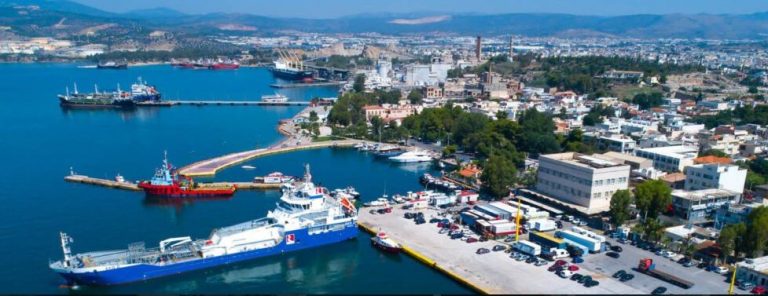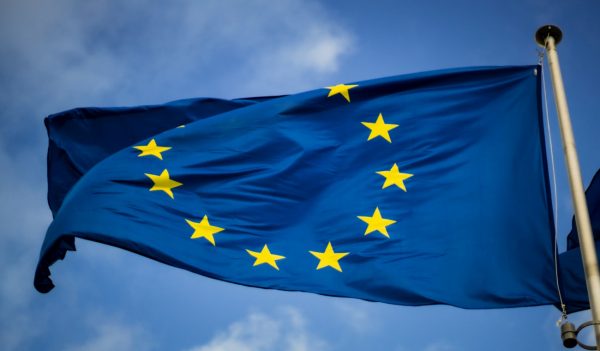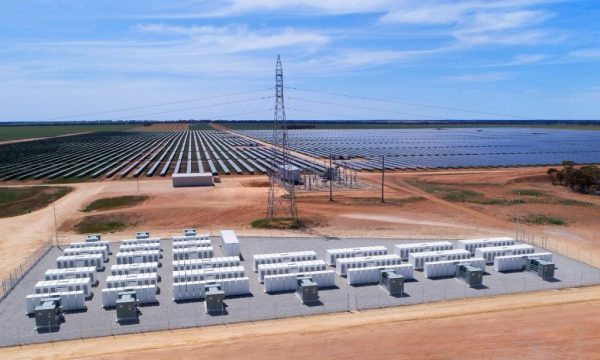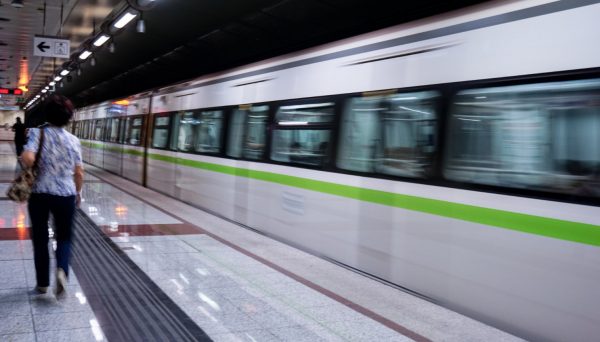
Although better known as a host area for decommissioned ships, few know that the port of Elefsina (ancient Eleusis) is one of the most important ports for serving bulk cargo in our country. In fact, it now aspires to respond effectively to the impending increase in the volume of loading and unloading work, mainly of building materials, for the needs of the implementation of the emblematic project in Ellinikoν. According to the management of the Elefsina Port Authority, cargo traffic increased by 50% in 2020 compared to 2019. Elefsina Bay is one of the largest and safest shelters for decommissioned ships in the world. And this because of its morphology (closed sea). Whenever α shipping company faces a small or bigger crisis, the “surplus” ships find hospitality in the Gulf of Elefsina. In the “backyard” of the port of Piraeus, as it has been called in the local maritime lingo.
The same thing happened at the end of the 2000s with the great crisis that broke out in 2008. At the time, many ships arrived and moored at the three anchorages of the Gulf of Eleusis, with some of them still there. However, the current situation is not close to what the area experienced in the early 1980s, when there were so many “battered” ships in the wider sea area that, as it was said at the time, “you could walk from Elefsina to Salamis, by walking from ship to ship.” According to greekshippingmiracle.org, almost 700 Greek-owned ships were then decommissioned in the Gulf of Elefsina and in other parts of Greece.
Haven
However, many of the decommissioned ships – victims of the last crisis – have been recommissioned in the last two or three years as markets have taken an upward trajectory. In the years 2021-2022, a total of 10 ships were decommissioned, which remained moored in designated sea zones of the Elefsina Port Authority for a long time waiting for a fare. These are two tankers, four tugs, three vehicle transport ships and an offshore drilling unit, which were chartered and have already left the area. Also, according to the data of the Elefsina Port Authority, which controls the other shipyards in the Gulf of Elefsina, out of 44 ships that were decommissioned in 2016 in its own areas of responsibility, only 16 ships are left today.
The presence of the decommissioned ships naturally provokes reactions from a portion of the local community, even though they are not abandoned ships, as they meet the legally necessary seaworthiness conditions and fully comply with the applicable provisions for the protection of the environment.
As the CEO of Elefsina Port Authority Apostolos Kamarinakis points out, “the Organization makes every effort so that the decommissioned ships that are currently docked in Elefsina are in a state of warm lay up, ie ready to depart at any time as soon as they find a favorable fare. On the contrary, the old ships that have been abandoned in the area, where two smelters operated and are now closed, are creating a problem.”
The strategic plan
In parallel with the effort to “clean” the bay from abandoned ships, the Elefsina Port Authority administration has implemented a development plan that aims to remove the port of Elefsina from the “shadow” of the port of Piraeus. In addition to increasing freight traffic, strategic plans include the preparation of a new, with a horizon of 25 years, development plan (master plan), the participation of the port of Elefsina in the Green Award network, the “green” transformation of the port in collaboration with DESFA. It is also planning to improve the competitiveness by upgrading the port services in view of their planned connection with the railway network and the freight center in Thriasio Pedio.
Finally, in the framework of the Cooperation Agreement signed with Eleusis 2023 – European Capital of Culture, it is implementing the innovative project “Sacred Sea Road” which concerns the construction of a new sea route that will start from Piraeus and end at the historic port of Eilefina , crossing the Strait of Salamis and uniting seven cities (Piraeus, Salamina, Keratsini – Drapetsona, Perama, Haidari, Aspropyrgos – Elefsina). The inauguration of the new maritime connection is planned for 2023 with the start of the events of Eleusis – Capital of Culture.
Latest News

Capital Link Forum Highlights Greece’s Economic Resurgence; Honors BoG Gov Stournaras
Capital Link Hellenic Leadership Award recipient, Bank of Greece Gov. Yannis Stournaras, an ex-FinMin, was lauded for his pivotal role during Greece’s economic recovery

Tourist Spending in Greece Up by 14%, Visa Card Analysis Shows
Greece’s capital Athens emerged as the most popular destination, recording a 17% increase in transactions with Visa cards, surpassing even the cosmopolitan island of Mykonos.

Inflation in Greece Unchanged at 2.4% in Nov. 2024
The general consumer price index (CPI) posted a 0.4% decrease in November compared to the previous month

2024 Christmas Holidays: Extended Shop Hours Schedule
The 2024 Christmas Holidays extended shop hours schedule commences on Thursday, December 12 and runs until the end of the year.

ELSTAT: Seasonally Adjusted Unemployment Down in October
The number of employed individuals reached 4,284,694, an increase of 67,723 compared to October 2023 (+1.6%) and 22,002 compared to September 2024 (+0.5%).

Greek PM’s Chief Economic Adviser Resigns
In the post on his Facebook page, Patelis did not disclose the reasons that led him to step down.

“Masdar Invests in the people of Greece and in the vision of TERNA ENERGY”
Four messages from the CEO of Masdar, the Arab renewable energy giant, after its acquisition of 70% of TERNA ENERGY

Lloyd’s List Greek Shipping Awards 2024: Honors for leading companies and personalities in the Greek shipping sector
20 awards presented at the 21st annual Lloyd's List Greek Shipping Awards

Syria’s Bashar al-Assad, His family Granted Asylum by Russia
Reuters also reported that a deal has been struck to ensure the safety of Russian military bases in the war-ravaged country

Greece to Introduce Artificial Intelligence into Its Education System
Currently, Greece is taking its first steps to bring AI into classrooms through the AI4edu program, which is being co-funded by the European Union














![Χειμερινή εξοχική κατοικία: Οι Ελληνες γυρνούν την πλάτη παρά την πτώση των τιμών [γραφήματα]](https://www.ot.gr/wp-content/uploads/2024/12/Capture-19-90x90.jpg)


























 Αριθμός Πιστοποίησης Μ.Η.Τ.232433
Αριθμός Πιστοποίησης Μ.Η.Τ.232433